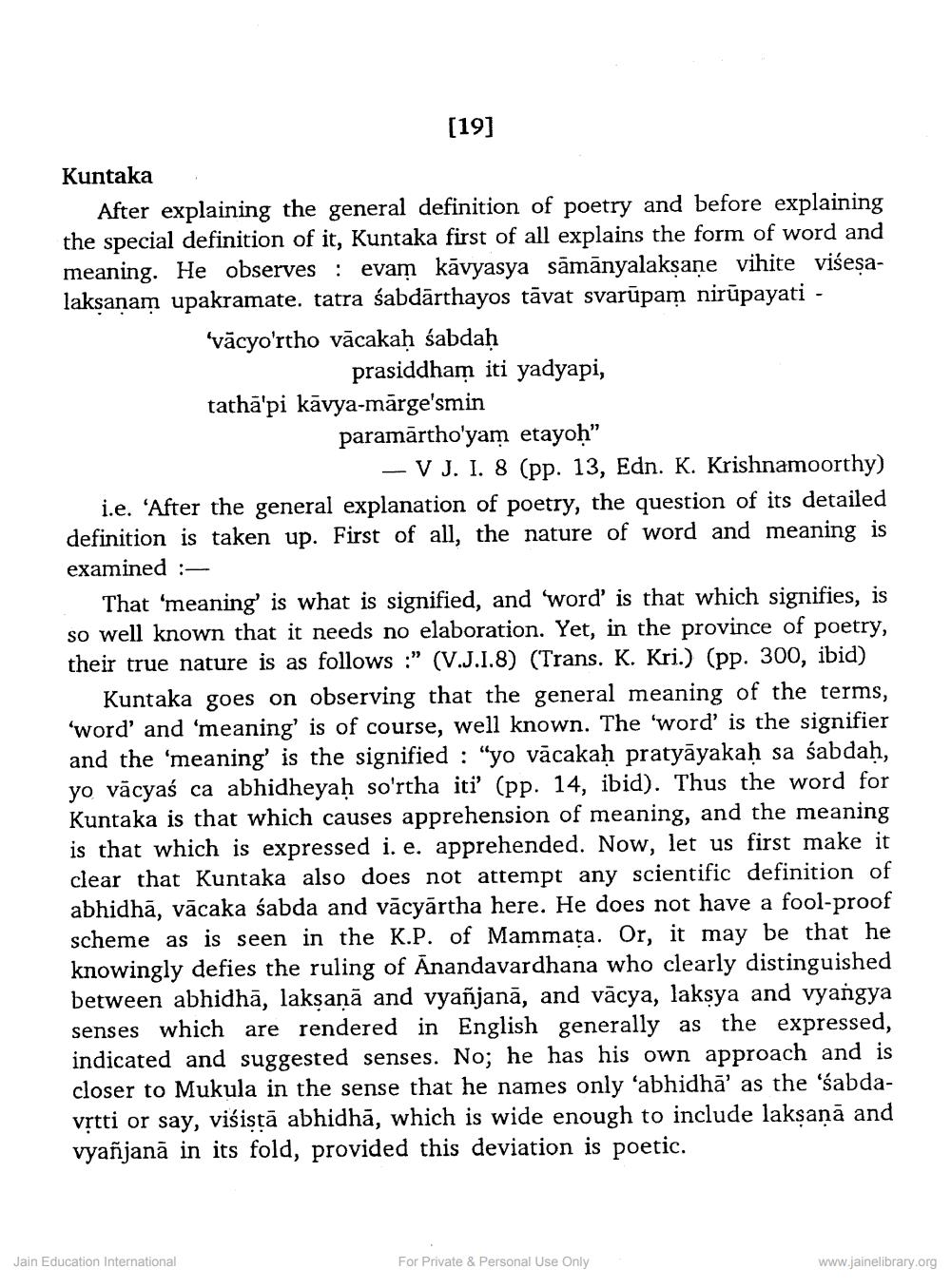________________
[19] Kuntaka
After explaining the general definition of poetry and before explaining the special definition of it, Kuntaka first of all explains the form of word and meaning. He observes : evam kāvyasya sāmānyalaksane vihite višesalaksanam upakramate. tatra śabdārthayos tāvat svarūpam nirūpayati - 'vācyo'rtho vācakah sabdah
prasiddham iti yadyapi, tathā'pi kavya-mārge'smin
paramārtho'yam etayo)"
– V J. I. 8 (pp. 13, Edn. K. Krishnamoorthy) i.e. 'After the general explanation of poetry, the question of its detailed definition is taken up. First of all, the nature of word and meaning is examined :
That 'meaning' is what is signified, and word is that which signifies, is so well known that it needs no elaboration. Yet, in the province of poetry, their true nature is as follows :" (V.J.1.8) (Trans. K. Kri.) (pp. 300, ibid)
Kuntaka goes on observing that the general meaning of the terms, 'word' and 'meaning' is of course, well known. The 'word' is the signifier and the 'meaning' is the signified : "yo vācakaḥ pratyāyakaḥ sa śabdah, yo vācyaś ca abhidheyaḥ so'rtha iti' (pp. 14, ibid). Thus the word for Kuntaka is that which causes apprehension of meaning, and the meaning is that which is expressed i. e. apprehended. Now, let us first make it clear that Kuntaka also does not attempt any scientific definition of abhidhā, vācaka sabda and vācyārtha here. He does not have a fool-proof scheme as is seen in the K.P. of Mammața. Or, it may be that he knowingly defies the ruling of Anandavardhana who clearly distinguished between abhidhā, laksaņā and vyañjanā, and vācya, laksya and vyangya senses which are rendered in English generally as the expressed, indicated and suggested senses. No; he has his own approach and is closer to Mukula in the sense that he names only ‘abhidhā' as the 'sabdavrtti or say, višistā abhidhā, which is wide enough to include laksaņā and vyañjanā in its fold, provided this deviation is poetic.
Jain Education International
For Private & Personal Use Only
www.jainelibrary.org




